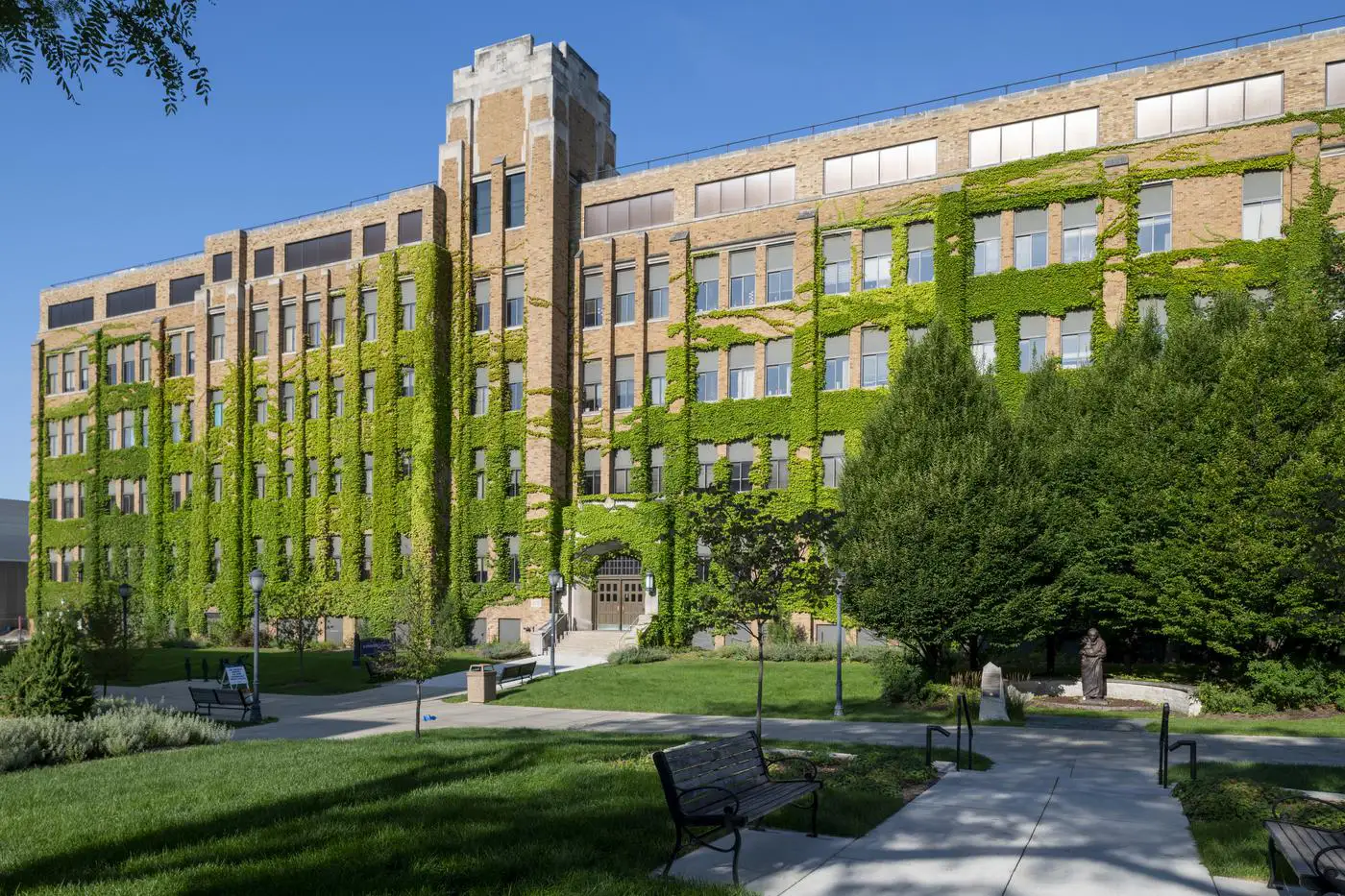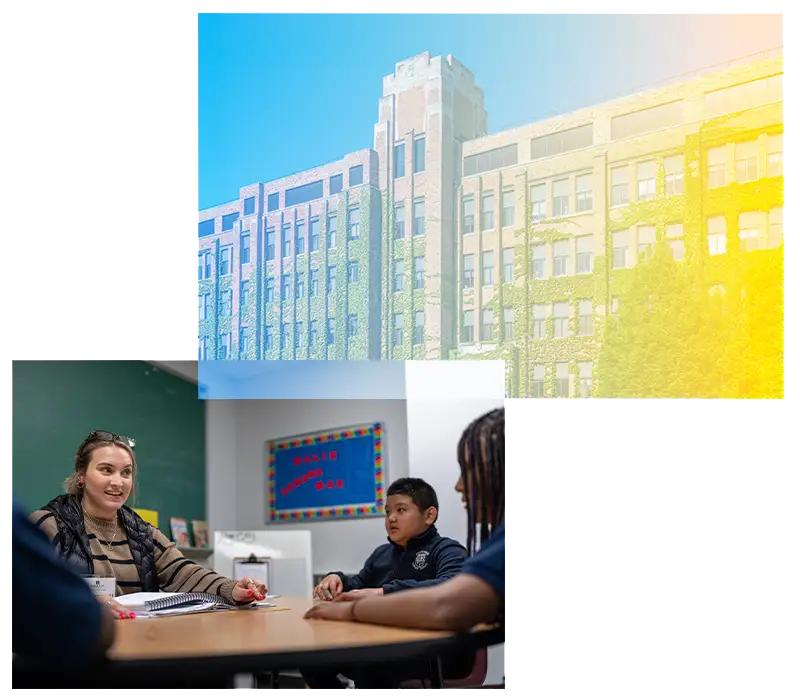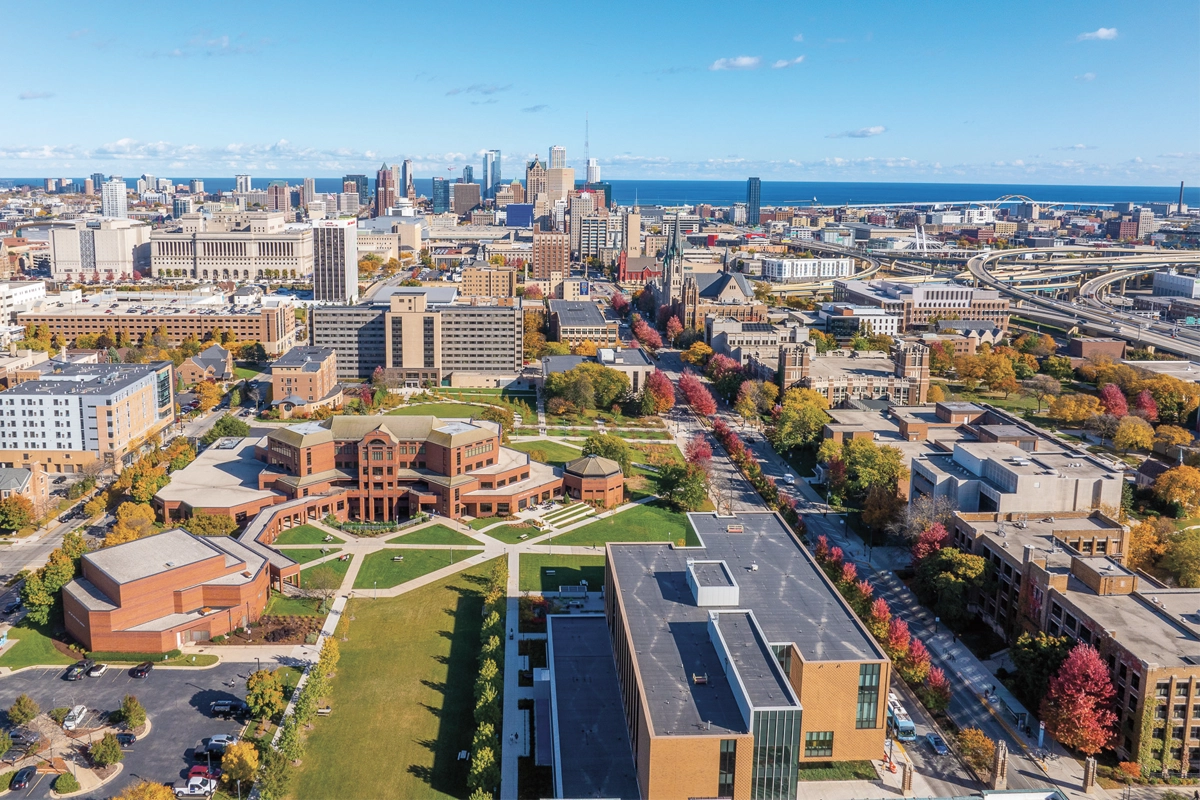Go beyond the basics of learning how to teach and manage a classroom, and step into your role as a leader who advocates for educational equity and innovation. Here, you’ll mix theoretical knowledge and hands-on practice, with plenty of opportunities to work directly with students individually and in classrooms long before you graduate. And, you’ll be encouraged to think deeply about the role of education in society and how you can contribute to positive change.
Whether you major in Elementary Education (grades K4–9) or Secondary Education (grades 4–12), everything you’ll do and learn will be grounded in values and emphasize care for the whole person. That means you’ll be prepared to meet the diverse needs of students in a rapidly changing world, equipped with strategies to support learners from all backgrounds.

Schroeder Health and Education Complex
Here, you'll join a close-knit, student-focused community of peers and teacher-scholars devoted to caring for others and the world. The majority (95%) of our students start participating in student teaching and fieldwork their first year. This experience will help you learn to think critically, innovate with heart and soul, and lead vigorously and collaboratively toward a more just society.
More than 80% of Marquette's education majors find teaching positions in their area of certification after graduation, with the remainder pursuing graduate work or securing jobs in education-related fields and nonprofit organizations.
More than half of our education graduates continue making a difference for children and adolescents in Milwaukee Public Schools, as well as in other public, private and charter schools in the Milwaukee metro area. Graduates who leave Wisconsin find success teaching in a wide variety of states, as well as abroad. Recent graduates have gone on to participate in programs like:

While you’re here at Marquette, preparing you for what’s next will be one of our top priorities. So, expect lots of learning by doing, connecting with others who share your passions, and reflecting on how you can Be The Difference.
Improve your teaching skills while you tutor Milwaukee-area school children at our Hartman Literacy and Learning Center. It’s a teaching, research and service site housed within our College of Education that actively works to improve the quality of literacy instruction provided by teachers and the literacy acquisition of children who struggle with learning to read.
From your first semester, you’ll participate in service learning, extensive fieldwork and student teaching or community-engaged internships. Through these experiences, you’ll not only build the skills to expertly manage a classroom and engage learners, you’ll also build mutually beneficial relationships with schools, families and community organizations in the greater Milwaukee area.
If you're interested in the research behind what makes a successful teacher, you'll be able to see it firsthand by working with one of our research centers and clinics, including:
Become a people-centered leader guided by our Jesuit tradition. Join our E-Lead program sophomore year and you’ll complete a combination of leadership courses and experiences that prepare you to be the driver of innovation for the common good. You’ll develop the skill set to generate innovative solutions and the mindset to reflect on the impact your work has on the world. Bonus: You’ll graduate with a concentration in leadership, too.
Expand your education with a semester abroad. Study program course work at prestigious universities around the world while you take advantage of potential teaching and observational opportunities or get involved with local students. Other international opportunities are available for education students through core courses, summer study, language study, faculty-led programs or research.
A Marquette education equips students to thrive professionally and personally through overall student support, career preparation and an extended family that can't wait to meet you. But don't just take our word for it.
Zippia.com
The Wall Street Journal
The Princeton Review (private universities)
